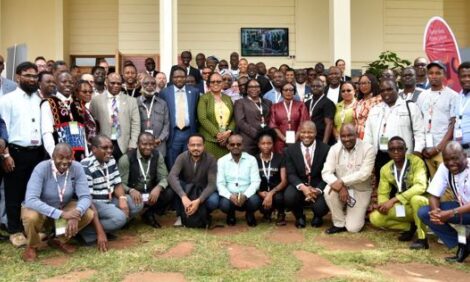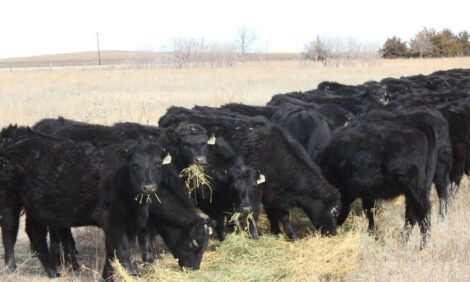



Water Management Crucial for Sustainable Food
GLOBAL - We will need 55 per cent more water in 2050, meaning a 40 per cent shortfall, a United National report predicts.The report coincides with World Water Day, as observed on Sunday, 22 March and links "inappropriate agricultural practices" with over-exploited a fifth of the world's aquifers.
Doing so has been found to undermine the environment’s capacity to provide clean water. the report explained.
The World Water Development Report 2015 states that by 2050, agriculture, which is the largest user of water resources, accounting for around 70 per cent of all freshwater withdrawals globally and over 90 per cent in most of the world’s least-developed countries, will need to produce 60 per cent more food globally, and 100 per cent more in developing countries.
As the current growth rate of global agricultural water demand is unsustainable, the sector will need to increase its water use efficiency by reducing water losses and by increasing water productivity (in terms of crop production).
The report also suggests that agricultural water pollution, which may worsen with increased intensive agriculture, can be reduced through a combination of instruments, including more stringent regulations, enforcement and well-targeted subsidies.
Practices like efficient irrigation techniques can also have a dramatic impact on reducing water demand, especially in rural areas.
Responding to the UN report, Irish Farmers Association President, Eddie Downey, said that the EU and UN will have to take the impact of this on food security fully into account when developing new Climate Change targets in Paris later this year.
Mr Downey said that future UN policy on Climate Change will have to prioritise food production and support regions where water is plentiful and food production can be increased sustainably.
He said Ireland is ideally positioned to grow production sustainably and any future EU/UN policy must not prevent this from happening, or penalise countries such as Ireland which is in a position to help meet the growing demand for sustainably produced food across the world.
Also discussing the need for sustainable water management in agriculture, Copa and Cogeca stressed the vital need to improve water management to ensure sustainable food supplies.
Copa-Cogeca Secretary-General Pekka Pesonen said: “European farmers and agri-cooperatives produce a wide range of quality food supplies and without water this would not be possible.
"Mediterranean regions are particularly lacking abundant supplies of fresh water. Farmers are also the first to the feel the impact of climate change, with crops being increasingly hit by drought and floods”.
“It is therefore vital to have a collaborative effort to improve water management. A voluntary, cooperative approach to water management is crucial to ensure water efficiency. Irrigation in the agriculture sector is vital in guaranteeing growth and jobs and quality food supplies. We have already made a lot of progress in this area and are committed to continue our efforts. Sustainable intensification is the best way to protect scarce resources like water at the same time as ensuring agriculture productivity,” he concluded.
Lucy Towers
News Team - Editor
After graduating from The University of Sheffield, Lucy joined 5M in 2011 as part of the News Desk team. In 2012, she was promoted to editor of TheFishSite. With previous farming experience and a love for the great outdoors, Lucy has a passion for wildlife and the environment.



